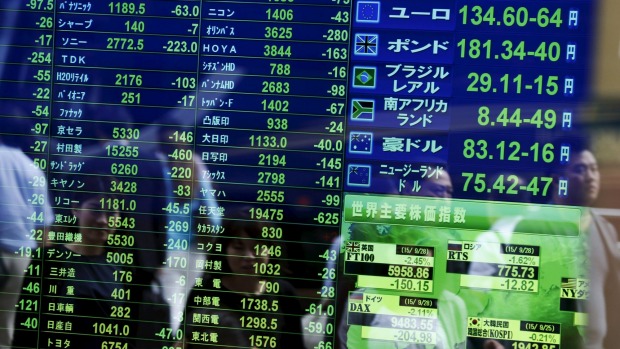The global economic slowdown shows a risk of extending into next year, along with a prolonged period of disinflation, according to the overwhelming majority of nearly 300 economists polled by Reuters around the world.
That threat, flagged by analysts who generally have been too optimistic about prospects for recovery since the global financial crisis, comes despite ultra-easy monetary policy from most major central banks for the last half decade.
Following the US Federal Reserve’s decision last month against raising interest rates from zero, citing worries about the global economy, and particularly China, a historic era of stimulative monetary policy is set to last even longer.
The poll also suggests that those few economies that have perked up this year, particularly the United States, the euro zone and Britain, are increasingly exposed to waning global demand and may not be able to maintain their momentum.
“Worryingly, for the regions that have shown the most resilience, the outlook seems to become more clouded,” wrote Christian Keller, head of economics research at BarclaysThe concern coincides with a growing sense of unease in financial markets, where market experts polled by Reuters have also taken a knife to all sorts of asset forecasts, from global stock indexes to sovereign bond yields, oil prices and emerging market foreign exchange rates.
So while 2016 is still forecast to be better than this year for most major economies, economists have trimmed their forecasts. Growth forecasts are lower and economists have chopped their inflation outlook across the board for most countries, with lower highs and lower lows, suggesting aggressive monetary policy has had very little effect so far in boosting inflation. Global growth is forecast to clock 3.1 per cent this year, followed by 3.4 per cent next. But that is based on expectations for easy monetary policy everywhere, with no major corrections.
Emerging markets The real worry in the near term centres around emerging markets, which have carried global growth in recent years. An unprecedented borrowing binge by the Chinese authorities to fuel infrastructure development has propped up growth in the world’s second-largest economy. But now that has come to an end, and the central bank has delivered a series of interest rate cuts to rebalance China’s economy away from exporting manufactured goods toward domestic consumer spending.
South Africa also increasingly looks to be gripped by weak growth and persistent inflation, and Brazil has nosedived into recession.


